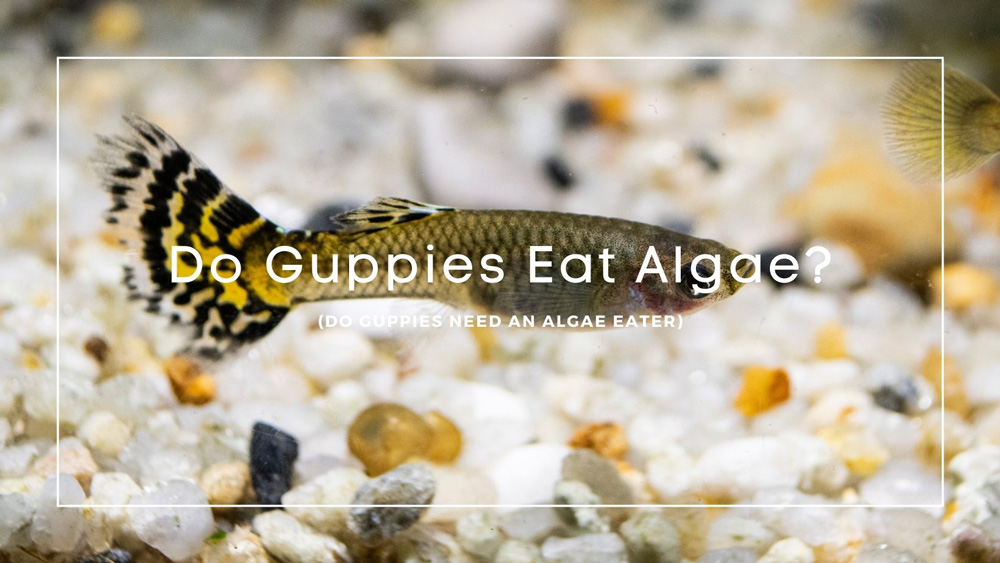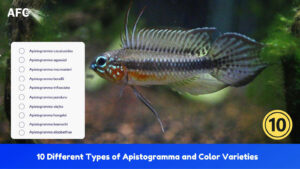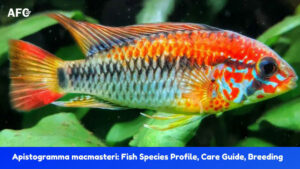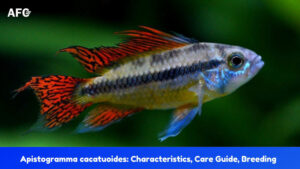If you are a fish enthusiast, there’s a high chance that you have guppies in the aquarium.
This tropical species, also known as rainbow fish because of its vibrant colors, is one of the most loved freshwater aquarium fishes worldwide. Also, have you ever noticed how the algae growing on the hose fitting of your aquarium magically disappears sometimes?
Well, you should thank your guppies for that! But is that a good thing? That’s why we are here with our informative guide in case you’re wondering – “do guppies eat algae?”
Keep reading to find out more.
Do Guppies Eat Algae?
Yes, guppies feed on algae when it becomes too prevalent in their surroundings. The latter is a source of high protein and fibre, so guppies do like to feed on it.
The growth of algae in your fish tank is not a pretty sight to see, so it is an upside that guppies are omnivores and eat it. That helps out with the cleaning to an extent.
Is Algae Good For Guppies?
Growth Of Algae
You must have observed that algae typically grows around the filter intake or airline tubing in your fish tank. This is because it is autotrophic in nature and needs oxygen to thrive.
For those of you who don’t know, autotrophs are organisms that can prepare their own food through photosynthesis in the presence of oxygen and sunlight.
Algae’s Effect On Guppies
Guppies have the tendency to keep munching, which implies no matter how many bloodworms or brine shrimps you feed them, they’ll still feed on the algae growing in the aquarium.
However, eating algae does not have any negative impact on these fishies, so you don’t have anything to stress about. The only thing is, algae need a rich supply of oxygen for growth and deplete its content in the water.
As a result, your guppies will have to compete with these autotrophs for air to breathe. This is not healthy, leading to a decline in the nutrients essential for their development.
Therefore, you need to watch out for the notorious growth of algae and clean it as soon as possible.
Can Guppies Live On Algae?
Yes, guppies can survive on algae, but not for long. The weeds serve as an aid in their nutrition but cannot replace fish food completely. Additionally, algal growth is thick and can block out the light when present in excess, preventing it from penetrating the tank.
This can obscure plant growth and ultimately affect your fishes’ health. Meaning, you should not allow algae to prevail in the water for long.
What Type Of Algae Do Guppies Eat?
These omnivorous fishes can eat mainly four types of algae that are commonly found in the aquarium water. Let’s get to know them in detail, so you have a sure and sorted idea of what goes inside your fishes’ tummies at all times.
Hair Algae
Hair algae is a very common green alga that normally carpets over plants and other surfaces. Falling under the Oedogonium genus, this species develops coats of densely packed filamentous structures.
It is likely to grow if the light is available in excess compared to the needs of the fis fiber plants in the tank. Speaking of growth, the type typically found in aquaria has long and soft filaments and grows when the system is developing its balance in the cycling phase.
Furthermore, hair algae can very easily disappear by itself, without any need for external cleaning, provided sufficient aquatic animals that eat algae are present in the tank.
Staghorn Algae
These red algae derive their name because of their structural resemblance with a stag’s horns.
Staghorn algae are really ugly to look at and are grayish-green in color. Now, you must wonder why they are grouped under the red algae family (Rhodophyceae) if they aren’t red. No worries, we’ll clear that for you.
This species has phycoerythrin pigments in addition to chlorophyll and therefore assumes a red shade when dipped in alcohol. Moreover, it often grows on the leaf margins of water plants and is extremely difficult to remove manually.
Black Beard Algae
Black beard algae, also referred to as brush algae, is another red species belonging to the Rhodophyceae family that guppies love feeding on. Their tufts seem like brushes or beards, and that’s why they are named so.
They grow when there is a large fish stock in the water tank but no aquatic plant. What’s more, these algae stubbornly cling to the ground and thrive in low carbon dioxide conditions.
Blue-Green Algae
Last but not least, blue-green algae (BGA) are unique and quite different from other species of algae. That is because they do not have a true nucleus (nuclear envelope isn’t developed) and are called cyanobacteria, falling under the category of prokaryotic organisms.
Guppies are fond of these bacteria and munch on them if they are present in the tank.
Do Guppies Clean Algae?
Can You Use Guppies To Control Algae? The answer is yes but guppies can clean algae only up to a certain extent.
Bristlenose plecos, Siamese, and Chinese algae eaters are a few competent species that can effectively feed on algae to clean the tank. They often peck at the weed growth since it contains certain microorganisms that are good for them.
But if you want to get rid of the algae completely, you should not depend solely on these fishes since there are better alternatives available.
Author note: Amano shrimp are the best algae eater for a guppy tank.
Final Thoughts
Guppies are colorful and adorable fishes that every aquarist wants to keep in their tank.
They are one of the simplest species to breed and are a go-to choice for beginners. These fishes are really low-maintenance and do not require much attention.
However, they are perpetual feeders and keep eating algae even when enough fish food is given. Algae eating doesn’t have any adverse effect on their health, but it does hamper the oxygen supply in the fish tank.
Hence, it is advisable that you keep your aquarium free from them. Now, that’s all that we had to share on the relationship between guppies and algae.
Until next time!





